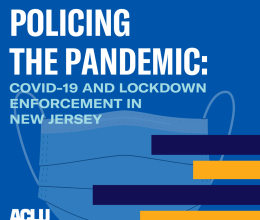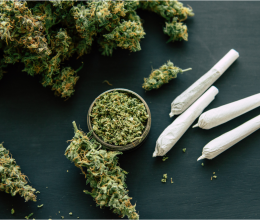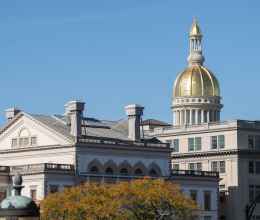
Background
Executive Order 103
On March 4, 2020, New Jersey announced its first case of COVID-19; shortly thereafter, on March 9, 2020, Gov. Murphy issued Executive Order 103, and declared a Public Health State of Emergency naming the spread of COVID “an imminent public health hazard” necessitating “appropriate” action to “protect and maintain the health, safety, and welfare of New Jersey residents and visitors.” The issuance of this order drastically changed the impact of the pandemic on the lives of all New Jerseyans. The Governor would eventually issue dozens more executive orders related to the pandemic, leading to a web of restrictions placed on residents and visitors to New Jersey.
The police response to Executive Order 103 was dramatic and diverse. The city of Hoboken imposed curfew restrictions and shut down public places. Newark issued “shelter in place” mandates that were actively enforced by police patrols with penalties for violations, including issuing summonses and tickets for those deemed to have violated executive orders. By April, Irvington, Newark, and East Orange had stationed police near the borders of the three cities to form “social awareness checkpoints.” The Elizabeth Police Department began using drones to monitor and enforce social distancing.
Concern that the restrictions could infringe on civil liberties was immediate and for good reason. In response to the declaration of a national emergency, the national ACLU warned that government steps to protect public health “must also safeguard people’s due process, privacy, and equal protection rights.” The ACLU-NJ created a Know-Your-Rights resource for New Jerseyans seeking answers to civil rights concerns related to COVID-19, from criminal justice to voting rights. But it was clear that a more robust and in-depth investigation into the impacts of these restrictions was needed.
Methodology
The pandemic policing project began in earnest at the ACLU-NJ in May 2020 when reports from the Governor and the Attorney General about increased ticketing and summonses by the Newark Police Department, sometimes hundreds each day, showed that enforcement was not uniform across the state. After securing funding for the project, we sent our first Open Public Records Act (OPRA) request in December 2020.
The total universe of data collected includes COVID-related charges brought against just over 3,200 individuals, primarily between March and May of 2020. Unless otherwise noted, all data in this report are sourced from records received from New Jersey counties in response to a series of OPRA requests by the ACLU-NJ from April 2021. The requests asked for information, records, and reports related to violations of New Jersey’s COVID-19 Executive Orders for the period between March 15, 2020, and December 1, 2020. The records received were compiled in the dataset used for this report. Of the total data collected, 44 percent failed to note the race-ethnicity of the person stopped (see slide 4). As a basic demographic matter, males comprised 63 percent of stops (see slide 12), and people aged 20-29 made up 20 percent of the stops (see slide 13).
By definition, every individual in the data set was charged with violating Governor Murphy’s COVID-related executive orders, which could derive from a failure to wear a mask, social distance, or observe the stay-at-home order, usually in the form of a disorderly persons offense (N.J.S. A:9-49), which carries possible penalties of up to a $1,000 fine and/or 180 days in jail. Also charged were petty disorderly persons offenses, which carry a maximum $1,000 and 6 months in jail, or a $500 fine and 30 days in jail, as well as a few businesses charged with COVID violations for staying open or for exceeding capacity restrictions. More than 70 percent of the recorded stops had a punitive action (see slide 5). Almost half of all individuals – more than 1,300 – were also charged with criminal obstruction of justice (N.J.S. 2C:29-1). New to the criminal framework around COVID stops was the use of “terroristic threats” as a cause or multiplier for criminal charges.




